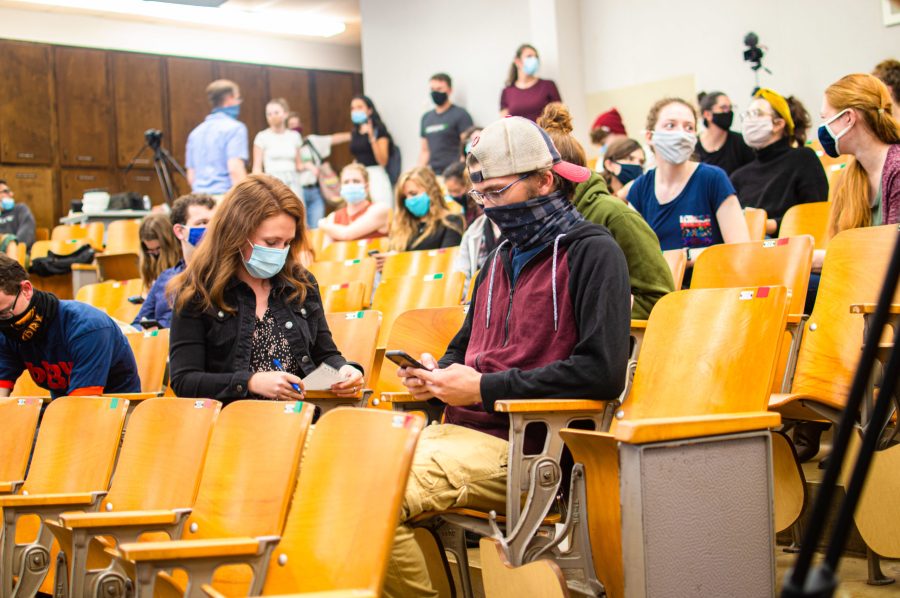The BJU Health Sciences Association hosted an hour-and-a-half panel discussion on Oct. 22 concerning the topic of transgenderism and several related issues.
Panelists Dr. Marc Chetta and Dr. Hannah Benge of the Division of Health Sciences, Dr. Valerie Peterson of the Division of Nursing, and Dr. Ted Miller of the Division of Biblical Studies and Theology answered a variety of student-submitted questions. While each question was addressed to a specific panelist, other members of the panel were given opportunities to share their thoughts on each topic as well.
Junior communication disorders major and HSA member Kaylee Dreese said the biblical insight she received from attending the panel will help her in the future since she expects to go to a secular grad school. “I really appreciate having Christian professors right now [who are] able to give us a biblical worldview on topics like transgenderism,” Dreese said.
Freshman biblical counseling major RuthAnn Mezzullo said the discussion served as a reminder of how Christians should reach out to others. “Always be willing to minister to people of different walks of life, especially somebody who may be thinking of transitioning or may already have transitioned,” Mezzullo said. “[It is important to be] able to show these people that they are created in the image of God.”
Miller addressed why transgenderism is a sin biblically. “God measures culpability of a sin by intent and knowledge,” Miller said. “Anybody participating in [transgenderism] on any level is going to be culpable for this, for the ideas and thoughts in their minds, or the actions that they flow out of.”
Chetta also specified that intersex is not a proper term for ambiguous gender at birth and that 99.98% of the time genetics are correct, implying this doesn’t excuse transgenderism.
Benge, being a speech-language pathologist herself, discussed whether it would be wrong for a speech-language pathologist to help someone retrain their voice to reflect the gender they wished to transition into. Benge said some people view this as a quality of life issue but that long-term effects must be considered. “Changing to try to sound like what the anatomy is not wired for will lead to harm and misuse and potential loss of voice,” Benge said.
Peterson answered questions relating to issues nurses may face when treating transgender patients. Peterson said when deciding what pronoun to address a patient by, calling the patient by their first name is safe. This shows respect while not violating one’s own conscience.
Regarding ethical decision-making, Peterson said, “Our professional code of ethics actually says in provision five that we have the right to care for ourselves and that we should not have to compromise our standards of practice or personal integrity.”
Chetta also gave insight regarding transgenderism in the medical field. When given questions on what defines gender, including beyond physicality, Chetta said, “The scientific truth is that sex is not assigned at birth. Sex is determined at conception.”























































